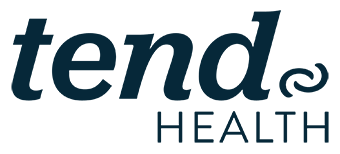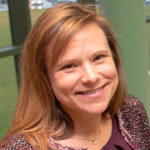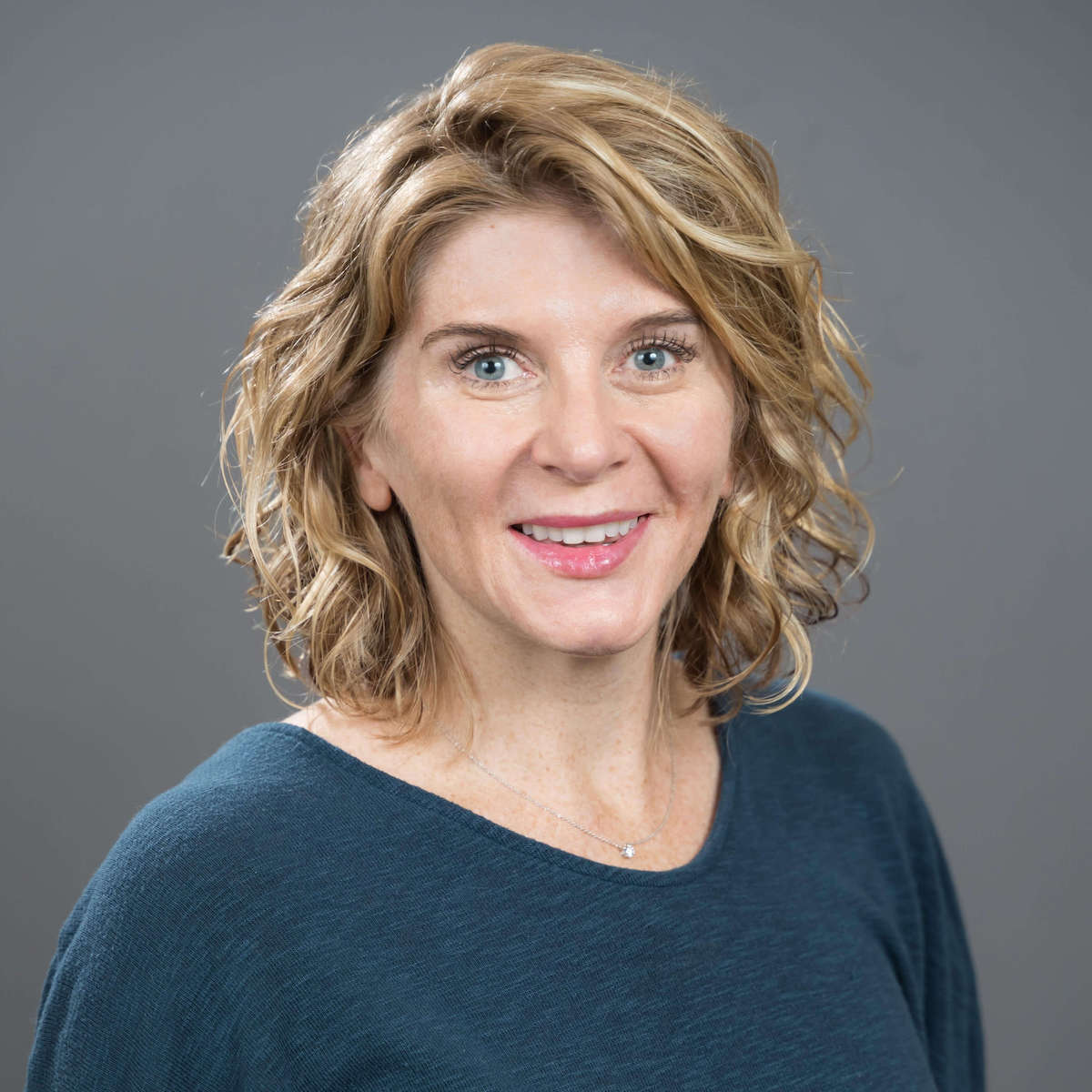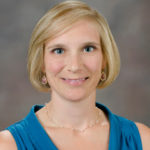Get the support you deserve
Bring coaching to your organization! We will work with you to coordinate the days and times that best meet your needs
Why coaching? Coaching offers support, helps you identify and commit to your goals, apply new skills, and build resiliency.
Coaching’s key ingredients include deep listening, clarifying values, and investment in your goals.
At a crossroads?
Feeling stuck?
Ready to take the next big leap?
New leadership role at work?
Coaching with Tend…
Access. Our coaching clients access us through messaging from anywhere, anytime with full confidentiality.
Expertise. All coaches have backgrounds and experience in healthcare settings, healthcare leadership, and high performing teams.
Flexible Scheduling. Meet with a coach when it works best for you.
Choice. You choose who you want to work with. Work with someone who will best meet your unique needs and who you can have fun accomplishing your goals with.
Coaching is not a clinical service so your location does not matter.

Meet Our Coaches
Ali Faris, PsyD
My passion for working closely with medical teams has led me to my work in hospital and outpatient medical settings, including in the field of oncology. In my work I have directly witnessed the struggles of healthcare professionals both in clinical and administrative roles and have learned how to support these providers through the many challenges they face in their professional and personal lives.
How do you think about and approach coaching?
Whether you are looking for greater purpose and meaning at work or at home, to lead with confidence and inspire your team, to fine-tune your communication skills or more effectively collaborate with others, to increase your productivity, efficiency, or focus, or at career advancement, planning/trajectory or transitions, coaching is likely a great fit to help you reach your goals.
My approach focuses on honoring your knowledge in the hope of creating an empowering environment where you benefit from freedom to discover your strengths, resiliencies, and courage. It is important to me that we consider your culture, history, and identity in our conversation. I truly appreciate the beautiful complexity that makes each of us who we are.
When not working …
I can be found doing many physical activities including circus arts and spending time catching up with friends and family.
Meet with Ali in Alabama, Arizona, Arkansas, California, Colorado, Connecticut, Delaware, District of Columbia, Florida, Georgia, Idaho, Illinois, Indiana, Kansas, Kentucky, Maine, Maryland, Michigan, Minnesota, Mississippi, Missouri, Nebraska, Nevada, New Hampshire, New Jersey, North Carolina, North Dakota, Ohio, Oklahoma, Pennsylvania, Rhode Island, South Carolina, Tennessee, Texas, Utah, Virginia, Washington, West Virginia, Wisconsin, Wyoming, and other states.
Brian Sandoval, PsyD
I am a licensed psychologist with over a decade of experience working in the “trenches” of primary care with medical providers and residents. I’ve heard consistently that practicing medicine can be incredibly rewarding and draining – sometimes on the same day. I believe adequate support through these ups and downs is critical to keeping providers engaged and healthy long-term. While that support can take many forms, I have often found myself helping providers manage the consistent tension between their occupational calling, the toll it takes on their personal lives, and the stress of the daily “grind.”
How do you think about and approach coaching?
My approach to coaching is both compassionate and practical. Each provider brings a unique experience and history, and I aim to help people function more effectively in their personal and professional lives as soon as possible. My focus is assisting others in getting “unstuck” through tangible tools, strategies, and awareness exercises, so each person brings forward the best version of themself – especially in times of adversity. I find that clarifying coaching goals at the outset, and revisiting our progress regularly, ensures we are moving in the right direction and that my clients are getting what they need from our sessions.
When not working …
I love taking road trips with my family, coaching my sons’ sports teams, eating tacos, and watching soccer (the “real” football).
Meet with Brian in Arizona, Oregon, Washington, and other states.
Brian Van Buren, PhD
I am a licensed clinical psychologist and have spent several years training and working in academic medical centers throughout New York City and Boston. I have spent most of my career working in hospitals and understand the unique pressures of inpatient medicine, rounding on the wards, and caring for people with complex medical problems.
How do you think about and approach coaching?
My approach to coaching is informed by my passion for partnering with healthcare professionals to foster wellness, resilience, and meaning in their personal and professional lives.
When not working …
I enjoy running, spending time with family and friends, and exploring all that the northeast has to offer.
Meet with Brian in Massachusetts, New York, and other states.
Claudia Allen, PhD, JD, ABPP
I’m a board-certified clinical psychologist with a passion for supporting health care professionals in living healthy lives and finding joy in their work. I’ve been working in academic medicine for almost two decades where I’ve had the opportunity to coach leaders, teams and individuals. I enjoy working with individuals and groups who want to be more effective and creative, or who want to bring more of their authentic selves to their work.
Working with me may be particularly helpful for those taking on a new task or leadership role, or who may be redefining their work due to family responsibilities, illness, or winding down a career.
How do you think about and approach coaching?
My goal in coaching is to help you recognize your own unique talents and strengths and work together to bring them to life. Often I find that medical training has somehow separated an individual from their own self and that the demands of day-to-day life keep them at a distance from their own heart.This can undermine joy and performance. In the safety of one-on-one coaching I help you rediscover those parts of yourself that will bring you both fulfillment and success.
In terms of structure I find it helpful to clarify values and set goals at the outset. I also find it important to check in frequently as to your satisfaction with our process and adjust accordingly.
When not working …
You can find me in Virginia or Maine painting, playing recreational sports, being in nature, hiking with my therapy dog, Scout, and spending time with my family and friends.
Meet with Claudia in Alabama, Arizona, Arkansas, Colorado, Connecticut, Delaware, District of Columbia, Florida, Georgia, Idaho, Illinois, Indiana, Kansas, Kentucky, Maine, Maryland, Michigan, Minnesota, Mississippi, Missouri, Nebraska, Nevada, New Hampshire, New Jersey, North Carolina, North Dakota, Ohio, Oklahoma, Pennsylvania, Rhode Island, South Carolina, Tennessee, Texas, Utah, Virginia, Washington, West Virginia, Wisconsin, Wyoming, and other states.
Ed Boudreaux, PhD
I am a cognitive-behavioral clinical psychologist who has worked for 30 years across a variety of medical settings, ranging from outpatient clinics to emergency departments to inpatient medical and psychiatric units. I have worked within residency and fellowship training programs this entire time. In addition, I am a senior administrator with experience at the departmental and institutional levels, both within medical schools and healthcare systems.
I understand the unique pressures healthcare providers experience, especially in the context of modern healthcare where pressure is generated not only from caring for sick patients but also navigating an increasingly complex and bureaucratic system that zaps much of the satisfaction from the work. I also understand what makes a healthcare professional successful and fulfilled in their careers.
How do you think about and approach coaching?
When I coach healthcare professionals, I focus on developing perspectives, skills, and behaviors that promote successful, satisfying careers that align with the individual’s interests, predisposition, training, experience, and passions. As importantly, I help the individual to identify strategies and behaviors that balance their work life with their personal lives. True satisfaction and longevity in a career is predicated on a satisfying personal life.
I use an approach that starts with identifying the individual’s primary personal values and exploring how they apply to both the individuals’ career and personal domains. We then identify both short term and long term goals within each domain and align them with the identified values. Next, we build a personal development plan that focuses on achieving these value driven goals.
When not working …
Outside of work, my wife and I spend most of our time raising our two children, maintaining our Victorian home – which is like our third child! – tending our garden, and building birdhouses. I also enjoy traveling, reading science fiction, and relaxing on my front porch.
Meet with Ed in Massachusetts and other states.
Emily Faust, PhD
I am a licensed clinical psychologist with a passion for helping people live full and meaningful lives, regardless of what challenges they may be facing either personally or professionally. I’ve been working in medical settings for over a decade. I have personally seen how hard healthcare professionals work to support their patients, clinics, and communities, and I am passionate about supporting their well-being!
How do you think about and approach coaching?
My style is energetic, uplifting, and empowering. I strive to help people make lasting changes in their professional and personal lives and I deeply enjoy helping people effectively address problems or concerns and actively move closer to their values and goals.
I have a wide variety of tools and utilize a flexible and contextual approach to incorporate strategies, teach skills, and set goals with you that will be most appropriate, effective, and efficient for your specific life circumstances.
When not working …
I live in central Washington state and enjoy working out, meditation, gardening, reading, and spending time with my family!
Meet with Emily in Alabama, Arizona, Arkansas, Colorado, Connecticut, Delaware, District of Columbia, Florida, Georgia, Idaho, Illinois, Indiana, Kansas, Kentucky, Maine, Maryland, Michigan, Minnesota, Mississippi, Missouri, Nebraska, Nevada, New Hampshire, New Jersey, North Carolina, North Dakota, Ohio, Oklahoma, Pennsylvania, Rhode Island, South Carolina, Tennessee, Texas, Utah, Virginia, Washington, West Virginia, Wisconsin, Wyoming, and other states.
Erin O'Hea, PhD
I am a licensed clinical psychologist with a specialty in health psychology and behavioral medicine. I have over two decades of experience working in medical settings as both a clinician and an educator with physicians and trainees from all different specialties, has deepened my understanding of the serious work demands that go along with being in the field.
I enjoy helping people make important changes in their lives to improve their overall wellness (i.e., sleep, nutrition, exercise, relationships). As someone who has studied women’s health for many years, I have a particular interest and experience working with women.
I strive to build trust and empathy with my coaching clients. I bring a true dedication and compassion to my work that I hope will promote growth and improve quality of life for all my coaching clients.
How do you think about and approach coaching?
All of us need to think about our health and our daily behaviors to ensure we feel and do our best. I believe that there is a wellness foundation that is essential to maximizing our effectiveness professionally and personally. This foundation includes stress management, present moment living exercises, regular exercise, good nutrition, and healthy sleep practices. In addition to wellness, we can all be more intentional in our relationships at work and at home. I believe that coaching should be focused on creating your most successful, healthy, and positive version of yourself. My approach to coaching is to enhance a person’s emotional and physical wellness through intentional lifestyle changes.
When not working …
I am spending time with family and friends, exercising, cooking (it’s truly therapeutic), reading, listening to music (many genres but love the 80s), and rewatching classic movies.
Meet with Erin in Massachusetts and other states.
Hernan Barenboim, PhD
With over two decades of experience as a medical family therapist and psychologist, I have worked closely with physicians and healthcare teams. I developed wellbeing programs such as peer coaching and curriculums for graduate medical education to address the culture of silence around mental health that is prevalent in healthcare and have spent time helping systems improve physician wellness. I am committed to enhancing the wellbeing of healthcare professionals and their families.
How do you think about and approach coaching?
Physicians and healthcare professionals are the epitome of resilience and often find themselves grappling with the challenges of the culture of healthcare. These challenges can create negative feelings and barriers, making it difficult to see clearly what you want for your professional and personal life. My approach is to focus on your internal voice, not what others want you to do, and to set goals that are uniquely yours to achieve.
My commitment to your wellbeing is unwavering, and I provide updated information and resources to enhance this aspect of your life. I firmly believe that coaching is about understanding the present to strategically build the future. In the current healthcare crisis, it’s easy to feel lost amidst the chaos, with numerous procedures and little time for yourself. I can work with you in Spanish, English, or Portuguese.
When not working …
I enjoy spending time with my family, exercising outdoors, and exploring fusion cuisine based on Latino dishes.
Meet with Hernan in California, Illinois, Wisconsin, and other states.
Jennifer Ayres, PhD, ABPP
I have been practicing as a licensed psychologist for 20 years and began working in medical settings 25 years ago as a graduate student. I have worked in hospitals, primary care, community mental health centers, schools, shelters, and residential facilities. My approach is authentic, practical, collaborative, trauma-informed, integrative, and begins with a gentle invitation: “Tell me what’s bringing you here and how I can help.” I am board-certified in clinical psychology and am a trained teacher of mindfulness and Mindful Self-Compassion.
How do you think about and approach coaching?
My approach to coaching combines my approaches to therapy and teaching. We begin with a conversation about the “main life areas” (work, relationships, communication, self-care, health, financial planning & health, future planning) and determine areas that my client would like to explore further and address strategically. We then collaboratively assess current resources, identify needed skills and/or resources, and create clear goals with specific, measurable steps and outcome measurements.
When not working …
I enjoy traveling, reading, writing, and exploring new places with my twin sons and our dogs.
Meet with Jennifer in Alabama, Arizona, Arkansas, California, Colorado, Connecticut, Delaware, District of Columbia, Florida, Georgia, Idaho, Illinois, Indiana, Kansas, Kentucky, Maine, Maryland, Michigan, Minnesota, Mississippi, Missouri, Nebraska, Nevada, New Hampshire, New Jersey, New Mexico, North Carolina, North Dakota, Ohio, Oklahoma, Pennsylvania, Rhode Island, South Carolina, Tennessee, Texas, Utah, Virginia, Washington, West Virginia, Wisconsin, Wyoming, and other states.
Jo Vogeli, PhD
I am a licensed Clinical Health Psychologist who has spent over a decade working with individuals to create a values-based and meaning-filled life. Helping people to become self-advocates for success and optimal wellbeing is the essence of all my work.
How do you think about and approach coaching?
My approach to coaching starts with understanding your values and motivations. Using these compass tools, I work with you to gain clarity in your perception of your current and desired situation, identify barriers to accomplishing your goals, and help you create an empowered sense of self as you move forward in achieving your goals.
When not working …
For my own meaning-filled life, I dance hula, read many books with my Cavalier King Charles Spaniel on my lap, and ride my Peloton bike.
Meet with Jo in Alabama, Arizona, Arkansas, Colorado, Connecticut, Delaware, District of Columbia, Florida, Georgia, Idaho, Illinois, Indiana, Kansas, Kentucky, Maine, Maryland, Massachusetts, Michigan, Minnesota, Mississippi, Missouri, Montana, Nebraska, Nevada, New Hampshire, New Jersey, North Carolina, North Dakota, Ohio, Oklahoma, Pennsylvania, Rhode Island, South Carolina, Tennessee, Texas, Utah, Virginia, Washington, West Virginia, Wisconsin, Wyoming, and other states.
Katherine Bergs, PhD
I am originally from North Carolina and trained at East Carolina University (Go Pirates!) in both Marriage and Family Therapy and Clinical Health Psychology. I finished my training at the University of Colorado’s department of family medicine and since 2015 I have been the Director of Behavioral Medicine at JPS Family Medicine in Fort Worth, Texas.
My job focuses on residency education, and I also do clinical work and research in the family medicine context. I have a strong interest in physician well-being and work satisfaction, as well as experience in helping learners, faculty, and clinicians who may be struggling.
How do you think about and approach coaching?
I offer coaching in effective communication strategies, work satisfaction, and career strengths.
When not working …
I enjoy watching football, tennis, and any chance to go to the beach.
Meet with Katherine in Alabama, Arizona, Arkansas, California, Colorado, Connecticut, Delaware, District of Columbia, Florida, Georgia, Idaho, Illinois, Indiana, Kansas, Kentucky, Maine, Maryland, Massachusetts, Michigan, Minnesota, Mississippi, Missouri, Nebraska, Nevada, New Hampshire, New Jersey, North Carolina, North Dakota, Ohio, Oklahoma, Pennsylvania, Rhode Island, South Carolina, Tennessee, Texas, Utah, Virginia, Washington, West Virginia, Wisconsin, Wyoming, and other states.
Nicole Dodillet, LCSW
My experience working on ICUs and in an outpatient cancer center gave me a deeper appreciation for the struggles healthcare providers can face both in caring for their patients and navigating the hospital system. I have witnessed firsthand the impact of burnout and secondary trauma providers must cope with, and I am passionate about supporting my clients through these difficult situations so they can continue to do the work they are so passionate about.
How do you think about and approach coaching?
I take a holistic approach to coaching, emphasizing overall wellness for clients as a foundation to foster emotional regulation, mindfulness, and motivation. I enjoy working with people at all stages of their careers, whether you’re a new graduate or years into your path. My goal is to create a supportive, empowering space for you, as we work together to build practical strategies that enhance resilience, improve well-being, and help you achieve your personal and professional goals.
When not working …
I enjoy trying new restaurants, exploring cafes and antique shops, being outdoors, listening to live music, traveling both near and far, and sharing time with my loved ones.
Meet with Nicole in Massachusetts and other states.
Robert Forrester, PhD
My coaching approach is centered around your success and efficiency. I am here to empower you to optimize productivity, manage stress, and enhance your executive functioning skills. Together, we will identify your strengths and areas for growth and create an action plan that aligns with your values and goals. I am committed to uncovering your sources of strength to fuel your personal and career aspirations.
I find meaning in helping my clients navigate career path frustrations, burnout, relationship concerns, ethical challenges, systemic hurdles, and workplace stressors such as interpersonal conflict, communication challenges, and productivity expectations.
How do you think about and approach coaching?
For me coaching is about curiosity. I meet clients where they’re at emotionally and mentally, which is usually at a place of stress, burnout and overwhelm, and not knowing what to do next, and together we explore the meaning, purpose, and potential for their lives. I approach coaching from a growth mindset and support clients in navigating challenges and meeting personal and professional goals.
When not working …
Outside of my professional life, I find joy in educating and coaching my daughter, enjoying quality time with my wife while binge-watching Netflix, and indulging in my passion for football whenever my schedule allows.
Meet with Robert in Alabama, Arizona, Arkansas, Colorado, Connecticut, Delaware, District of Columbia, Florida, Georgia, Idaho, Illinois, Indiana, Kansas, Kentucky, Maine, Maryland, Massachusetts, Michigan, Minnesota, Mississippi, Missouri, Nebraska, Nevada, New Hampshire, New Jersey, North Carolina, North Dakota, Ohio, Oklahoma, Pennsylvania, Rhode Island, South Carolina, Tennessee, Texas, Utah, Virginia, Washington, West Virginia, Wisconsin, Wyoming, and other states.
Sue Pollington, LCSW
I want to remove barriers to care. In my experience as a healthcare professional and working with healthcare professionals we often don’t feel we can access care. Not because it’s not available, but because there is this idea that we shouldn’t need support in these ways. That somehow we are immune to the trauma and secondary trauma we are exposed to routinely even though few of us get training on managing that trauma in school or from our workplaces. I want to be part of the solution which means supporting healthcare professionals in ways that meet their needs and are effective.
How do you think about and approach coaching?
I am experienced, client-centered, and authentic. I recognize each person is unique and deserving of the time and attention needed to achieve their goals. I enjoy helping people through life’s challenges and offering a safe, supportive space to explore difficult emotions. I’m dedicated to empowering my patients to reach their goals and navigate life’s ups and downs with guidance and care.
You might like working with me if you’re seeking a collaborative, conversational approach to therapy. I focus on creating a trusting, open environment where you can feel heard, and we can work together to find solutions that resonate with you. If you value a personalized approach and enjoy setting goals that are both achievable and enjoyable, you’d be a great fit for therapy with me.
When not working …
I enjoy spending time with my family and continuing to explore my love of animals and nature. I believe in balance and make time to recharge by enjoying the world around me.
Meet with Sue in California, Montana, and Nevada.
Angela Wendorf, PhD
I am a licensed clinical psychologist with a specialty in clinical health psychology and have worked in multidisciplinary teams in medical settings for over a decade with medical and nursing trainees. Working alongside healthcare professionals I have witnessed the struggles involved in balancing the challenges of life that are amplified by the demands of training and working in healthcare.
How do you think about and approach coaching?
I offer coaching in topics related to working on multidisciplinary teams, career development, navigating training and career transitions, improving well-being including support of healthy lifestyle changes. I incorporate a values-based and action-oriented approach to coaching to guide meaningful change, growth, and wellness.
When not working …
I am originally from Wisconsin, trained in California, and now call New England my home. I love being outdoors and exploring trails, mountains, and waterways with my husband and tiny (but mighty!) Chiweenie.
Current patients only: Meet with Angela in Massachusetts and other states.
Angela is not taking new patients at this time.
Mandy McCorkindale, PsyD, ABPP
I am a board certified Clinical Health Psychologist with over a decade providing therapy and consultation. My background and experience have focused on the primary care setting, and I’ve worked with medical professionals in a variety of clinical areas.
In my experience, healthcare professionals are a unique group of driven, dedicated people who are known for stepping up to whatever challenge they encounter, but sometimes that can come at the expense of their own well-being or balance of work and personal life. I enjoy helping others to find their own “true north” and live the best life possible.
How do you think about and approach coaching?
My approach to coaching is to explore your needs and values, and then together we will come up with a plan for making changes. Providing you with tangible tools and strategies to tackle your daily challenges is my goal as well as helping you to discover ways to stretch your potential to grow into the best version of yourself.
When not working …
In my own journey to living a balanced life, I enjoy walking, yoga, kayaking, and spending time with the people who matter most to me. I am a veteran and currently serve in the Army National Guard. I have two adult children, and two incredibly amazing grandchildren who help remind me to explore the wonders of life. My partner and I also recently added a mini Aussie puppy to our household so she and her energy keep me moving!
Current patients only: Meet with Mandy in Alabama, Arizona, Arkansas, Colorado, Connecticut, Delaware, District of Columbia, Florida, Georgia, Idaho, Illinois, Indiana, Kansas, Kentucky, Maine, Maryland, Michigan, Minnesota, Mississippi, Missouri, Nebraska, Nevada, New Hampshire, New Jersey, North Carolina, North Dakota, Ohio, Oklahoma, Pennsylvania, Rhode Island, South Carolina, Tennessee, Texas, Utah, Virginia, Washington, West Virginia, Wisconsin, Wyoming, and other states.
Mandy is not taking new patients at this time.
Coaching FAQs
What is the difference between coaching and counseling?
Counseling often involves a diagnostic or problem-oriented perspective, relies heavily on the relationship with the clinician, and includes a lot of self-discovery. People often seek counseling to improve or resolve a specific set of symptoms or situations.
Coaching is about defining and clarifying intentions around a specific self-improvement goal or skill development/enhancement and implementation. In coaching, the relationship between the coach and the client should also be strong. However, just like in high school, sometimes your best coach is not the one you like the most. Coaches might challenge you more and expect more action-oriented steps between sessions. Coaching is often, but not always, shorter in duration than counseling.

 We love staying connected to our community.
We love staying connected to our community. Tina Runyan, PhD, ABPP
Tina Runyan, PhD, ABPP
